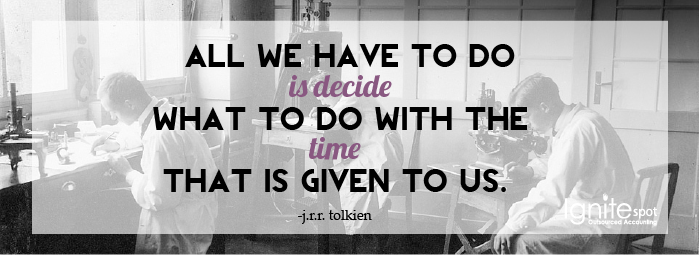
"innovation is a team sport, not the act of a sole inventor. Truly innovative groups are consistently able to elicit and then combine members' separate slices of genius into a single work of collective genius,collaboration has to happen at some point. Just don't waste everyone's time with ineffecient brainstorms."
Do you know who I’m thinking about? Ya. Neil Peart. RUSH's iconic drummer.
Of course we want Neil Peart. It’s obvious...or is it?
Why am I even questioning hiring Neil Peart? I know it’s crazy, but hear me out.
I’m the lead singer, remember? And you’re the guitarist, right? We’re both a little on the nerdy side. Let’s be honest. We’re not Geddy Lee. Even I can’t sing that high.
We work hard though, and we geek out on lyrics and riffs. We’re really good at that part. Maybe we don’t need a drummer that will drown us out, and cost us a fortune. Let’s figure out our sound.
Maybe we’ll find out that someone like Meg White is actually a better fit for us. Everyone else is telling us that Neil is the better drummer, but we know, deep down in our gut, that Meg is going to make our band rock.
Risky? Maybe. Maybe we’ll get lucky because we're aware of our skill set and what we need, and we’re willing to look for something unexpected.

What does this have to do with building a profitable team? Good question.
Choosing a rockstar team that will continue to grow your business has to do with luck, throwing out mirrors (you know, smashing stuff on stage), and not wasting your time on collaboration.
I still love Neil Peart. But he’s not for us.
Now, let’s get lucky, smash stuff, and create the best profitable small business team in the world.
LUCKY PEOPLE SEE BEYOND A RESUME
"Lucky people are lucky because of personal characteristics rather than some mysterious fate...Lucky people are more relaxed, and they tend to see not only what they are looking for, but also what they are not looking for. They are open to the new and unexpected." -Piero Ferrucci
#1 : Mindfully Mining For the Perfect Candidate
Profitable leaders are alert, and I'm talking about more than getting a good night's rest or having an extra cup of coffee.
Stay present and stop overlooking what's right in front of you. CEO’s often have someone with a specific skill-set in mind when they start reading over resumes, and interviewing candidates. This narrow mindset could cause you to skip over interesting candidates with a background that might give your team just the right amount of kick to spice things up.
Also, stop looking at resumes all the time. Ok, maybe you're not looking at resumes all the time. In fact, ERE reports that most recruiters only review a resume for 6 seconds. Why? My guess is they're scanning for key words, and probably overlook really interesting candidates. Finding the right people for your team should take a lot more time than 6 seconds. Seriously.
It might be helpful to actually start reading the resumes. On average, there are 250 resumes submitted for every corporate job opening. Yikes. Read all 250? I suggest you start by reading the intersts/hobbies/volunteer section of the resume. Does the applicant have an interesting life outside of work? Then, if your interest is peaked, take a look at their work experience.
Or throw out resumes all together. Use your network and word-of-mouth, and approach people in social settings whom you wouldn't usually approach. Get to know everybody--at least your network will grow, and you'll meet some interesting (and probably not-so-interesting people). Who are you talking with in and out of the office? When you’re looking for someone to add to the team, everyone you come in contact with is a potential candidate.
Use your time wisely, enjoy it, and your open eyes will reveal your profit-potential.
#2 : Ask Questions and Your Day Will Rock.
 Whether you're reading over a resume, or talking with someone you just met at a colleague's home, you'll enjoy what you're doing more if you're acutally curious about the other person.
Whether you're reading over a resume, or talking with someone you just met at a colleague's home, you'll enjoy what you're doing more if you're acutally curious about the other person.
Get this: Todd Kashdan reports, "the majority of Americans spend less than 20 percent of each day doing what could be termed very engaging, enjoyable and meaningful activities (such as talking with close friends, bonding with loved ones, creating, playing, or pursuing a spiritual practice)." Sobering? Ya.
The truth is, as a CEO and small business owner, you're busy. And you're often busy trying to build a team so that you can start delegating and get back to those meaningful and engaging things in your life.
However, cultivating a sense of curiosity is likely to make even reading over resumes far more engaging than if you're simply looking at a checklist. Try to find out about the person behind the resume.
Once you notice that interesting person, and an interview is arranged, start asking questions--questions that might seem irrelevant to the job, but are just simply interesting. If they’re not an intriguing person in general they might not add the right flavor to your team--even if they’ve got the checklist skills.
Mashable suggests that,
"Work experience is useful, but side projects are revealing. Does the person you potentially want to hire like to contribute to open-source projects? Does he or she like to cook or do extreme sports in his or her spare time?
Side projects are good things — they demonstrate that a person has ambition and drive. However, the types of things potential hires are developing, the types of blog posts they write, and what they tweet about are all telling signs of what type of team players they will become. Look for their personal blogs and less-obvious profiles for a fuller picture.”
# 3 : You're Not the Only Expert
You don't have all the answers. Even if you're an expert. Be willing to learn as you interact with potential candidates. This goes hand-in-hand with curiosity. Ask the questions, and hope you see things from a new angle after talking with somebody.
"Eyes on the prize"--except be willing to adjust the prize. Otherwise, you might miss that innovative solution that will keep your business profitable.
#4 : Envision the Possibilities
Have faith that this person can add to the possibilities of your vision and your company. Even if they lack one or two things on the checklist, have faith in them that because they're interesting and can solve problems that they will step up to the plate.

SMASHING MIRRORS : DON'T HIRE YOUR REFLECTION

I know you think you need to find people who are a lot like you if they're going to share your vision. I know you think that you can do it all. I know you sort of want to hire your twin to help you out.
That mirror you look in every morning? It’s distorted. Stay mindful enough to notice people with different skill-sets that will add to your vision, not replicate it.
Carmen Nobel with Harvard Business School writes,
"A recent study finds that venture capitalists have a strong tendency to team up with other VCs whose ethnic and educational backgrounds are similar to their own. Unfortunately, that tendency turns out to be bad for business.
AT THE EARLY STAGE OF A COMPANY, YOU WANT THE PEOPLE AROUND THE TABLE TO CHALLENGE EACTH OTHER.
In the paper The Cost of Friendship, three Harvard researchers show that the more affinity there is between two VCs who co-invest in a new company, the less likely it is that the company will succeed."
The mirror is filled with yes-men and women. Smash it.
BEWARE COLLABORATION
Once you’ve assembled your team, continue to create luck and stay far away from the mirror.
And, most importantly, try not to extinguish your teams’ talent by forcing them into collaborations that inhibit creativity and productivity. If you got rid of the mirror then you’re on the right track. In an article about Why Working Together Often Yields Weaker Results, Ron Friedman observes,
Collaborations are most effective when teammates complement rather than replicate one another's abilities. Skill duplication leads to power struggles.
In order for the team's abilities to really come out, don't waste your time in brainstorming. Friedman also advises,
Use meeting time to exchange ideas, not generate them.
Allow your team to research and create on their own. Then when they have hit a wall you can come together to work through the problems, and you’ll save everyone a lot of time and a lot of anxiety over group dynamics.
In the end, you've got to trust your instincts. But while you're at it, get lucky, smash stuff, and use collaborative time wisely.
And now, a battle of the bands drummers.
Who won?
References:
(2014, June 23) Nobel, Carmen. In Venture Capital, Birds of a Feather Lose Money Together. Harvard Business School Working Knowledge. Retrieved June 27, 2014 from http://hbswk.hbs.edu/item/7316.html
(2013, May 20) Dr. Sullivan, John. Why You Can't Get a Job...Recruiting Explained By the Numbers. ere.net. Retrieved June 27, 2014 from http://www.ere.net/2013/05/20/why-you-cant-get-a-job-recruiting-explained-by-the-numbers/
(2010, May 5) Parr, Ben. 10 Essential Tips For Building Your Small Biz Team." Mashable. Retrieved June 27, 2014 from http://mashable.com/2010/05/05/how-to-build-a-business-team/
(2014, June 11) Friedman, Ron. The Collaboration Paradox: Why Working Together Often Yields Weaker Results. 99u.com. Retrieved June 27, 2014 from http://99u.com/articles/27941/the-collaboration-paradox-why-working-together-often-yields-weaker-results?utm_term=0_bdabfaef00-1da9e2b438-149135393&utm_content=buffer7a09c&utm_medium=social&utm_source=twitter.com&utm_campaign=buffer
(2010, May) Kashdan, Todd. The Power of Curiosity. experiencelife.com. Retrieved June 27, 2014 from http://experiencelife.com/article/the-power-of-curiosity/
(2014, June 18) Girard, Kim. Leading Innovation Is the Art of Creating "Collective Genius." Harvard Business School Working Knowledge. Retrived June 27, 2014 from http://hbswk.hbs.edu/item/7431.html
What To Read Next:
Free Email Course : 30 Days To a Profitable Business













.png)


